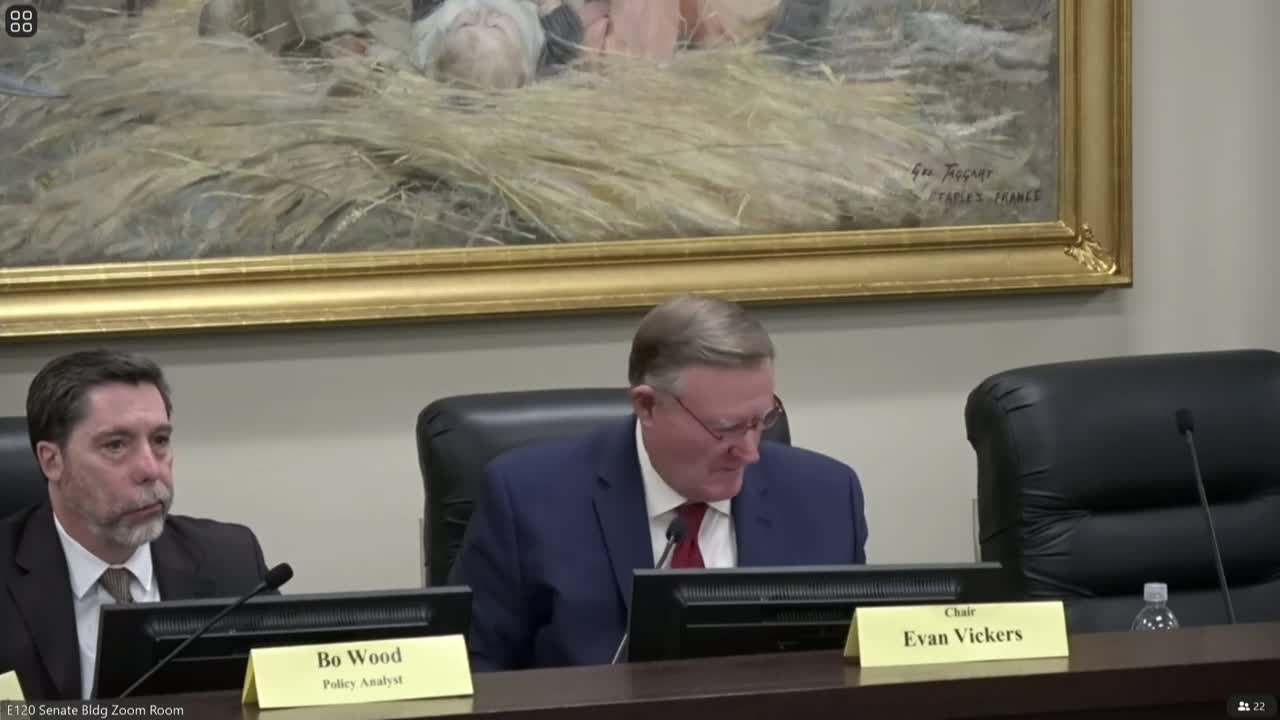Senate committee tables bid to stop clock changes; debate centers on families, agriculture and local impacts
Get AI-powered insights, summaries, and transcripts
Subscribe
Summary
The Utah Senate Business, Labor and Technology Committee voted 7–1 to table House Bill 120, which would shift Utah to permanent standard time until federal law allows a move to permanent daylight time. The bill prompted hours of testimony from parents, health experts and industry groups about sleep, public safety and economic trade-offs.
Representative Eliason presented House Bill 120, the Time Change Amendments, saying the measure would end biannual clock changes by placing Utah on permanent standard time until federal law allows permanent daylight time.
"This bill is the only tool we have that we can actually stop the clocks from moving backward and forward each year," Eliason said during his presentation.
Nut graf: The committee heard sustained public comment both for and against the bill—ranging from families with autistic children and sleep experts who urged a stop to clock changes, to industry groups and local governments that warned of costs and practical disruptions if Utah adopts permanent standard time. After extended debate the committee voted to table the bill, pausing further action.
Supporters described health and safety harms from the twice-yearly shifts. Stacy Muhlestein, who identified herself as a Monticello resident, told the committee that clock changes cause weeks of sleep disruption for families with neurodiverse children: "For those of us with autistic children, we deal with more severe meltdowns and behaviors in the weeks following the time change due to the unnecessary disruptions in their sleep schedule and routine." Dustin James Harper, who said he represents "hundreds of thousands of families in Utah with young children," argued permanent standard time would reduce the weeks of upheaval for families and quantified the potential change in evening daylight: "If this bill passes and we adopt permanent standard time, the Wasatch Front will have about 240 days with sunset after 6 p.m., which is a difference of about 30 days," he said.
Opponents warned of economic and operational impacts. Taz Biesinger of the Utah Home Builders Association said many local noise ordinances prevent construction from starting before 7 a.m., so earlier mornings would not be available and workers would be pushed into hotter afternoons. Matt Marziel of the Utah Recreation and Parks Association said reduced evening daylight would require either more field lighting or more playing fields to maintain program schedules, with financial consequences for municipalities. Representatives of farming, landscaping and golf groups similarly cautioned that earlier-morning work windows are key to avoiding afternoon heat and preserving revenue streams.
Committee debate touched on regional coordination and cross-border effects. Senator Sandle said parts of northern Utah would be out of sync with Idaho for much of the year under permanent standard time, and noted cross-border commerce and commuting patterns in his district. Senator Weiler and others acknowledged the strength of advocates on both sides; Weiler moved to table the bill, citing the recurring nature of the issue and a desire not to raise expectations for families if the measure fails later.
The committee voted to table HB 120 on a 7–1 margin. The transcript records one senator as recorded in the roll as voting "no"; individual yes votes were not spelled out in the public record excerpt. The motion to table was made from the floor by Senator Weiler.
Ending: With the motion to table approved, the bill is effectively paused in committee. Sponsors and opponents said conversations will continue; proponents said the issue is likely to return in future sessions if federal action does not resolve the interstate timing question.
